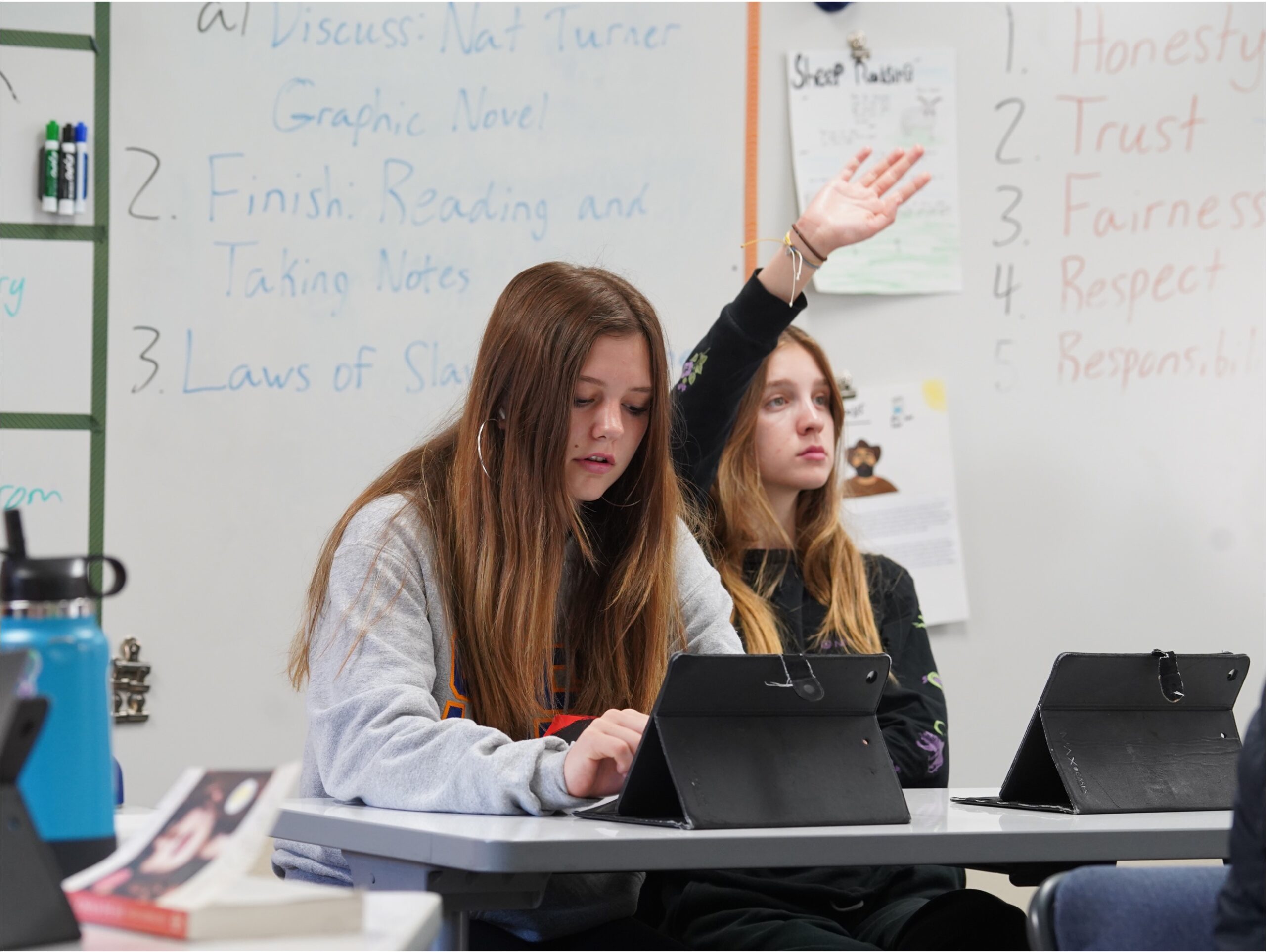“The Quartering Act was where [British soldiers] basically lived in your home. But also, I don’t get how it was like a tax?”
8th Grade Historians are studying events that led up to the American Revolution, exploring various sources to understand the motivations and momentum behind this critical junction in the creation of the United States. Using their knowledge of British Parliamentary actions in the 1760s, students worked with assigned seat partners in short discussion to assemble what they already knew about mounting tension in the Colonies against British rule. Questions and facts about the Townshend Act, Stamp Act, Boston Massacre, French & Indian War, and more were shared. “The colonists were mad because they had land to the west of the Appalachians and Britain says they can’t cross the line they’ve drawn. I’d be mad too.”
The colonists were mad because they had land to the west of the Appalachians and Britain says they can’t cross the line they’ve drawn. I’d be mad too.
Their teacher challenged them to consider alternate theories: “That version of the events is the most common and probably the most easy to understand as a cause of the Revolution. Our goal today and Friday is to read some alternate possible explanations for why or how it happened, to see history and events through more than one perspective.” With that, students read aloud a chapter from Howard Zinn’s Young People’s History of the United States about Bacon’s Rebellion of 1676, 100 years earlier. Within one class, students worked with partners to synthesize prior knowledge, read a chapter with an alternate claim, independently wrote a paragraph in which they selected a piece of evidence and made a claim about its impact on their understanding of “oppression” the Colonists experienced, and read their paragraphs aloud.
In these structured exchanges of ideas, students gain fluency in essential historical and transdisciplinary reasoning skills: absorbing information in multiple modes, synthesizing and analyzing, building claims with evidence from shared texts, and re-considering claims with new information, perspective and persuasion of experts and peers. Learning the history that shaped this moment equips students to better appreciate current affairs, geography, politics and economy; learning it in this way develops their potential to carry out dialogue and lead decision-making into the future.

